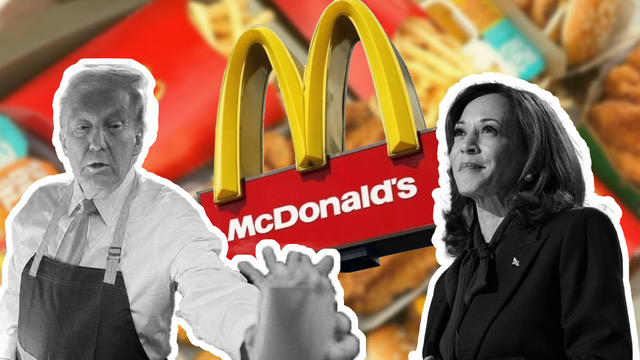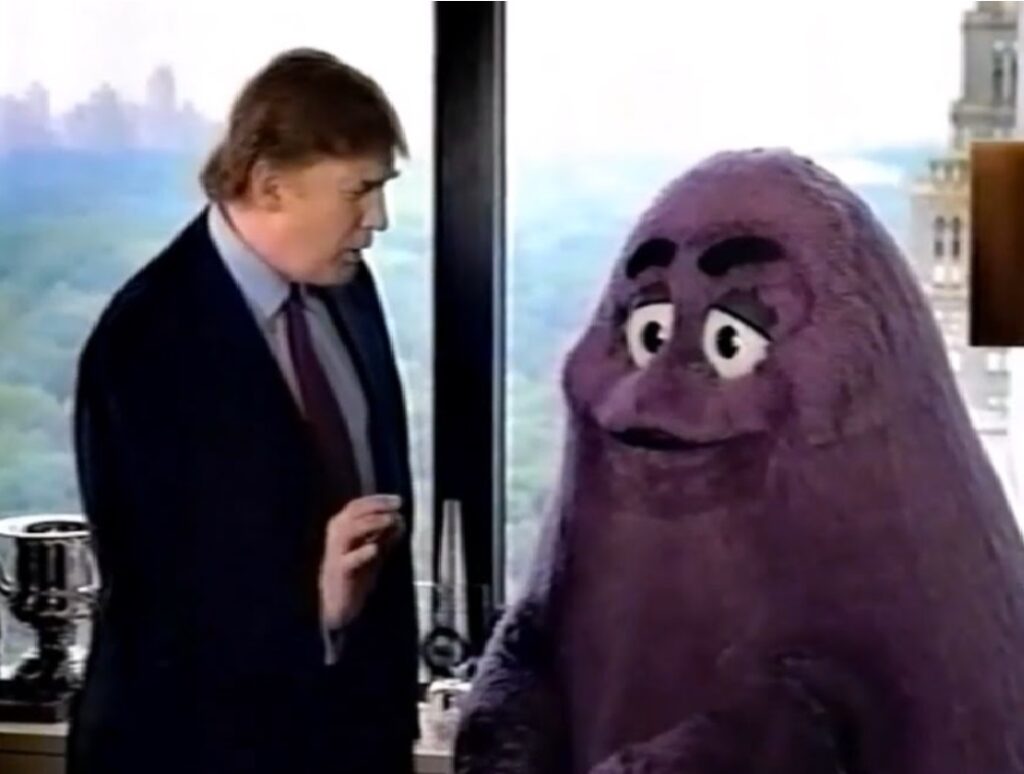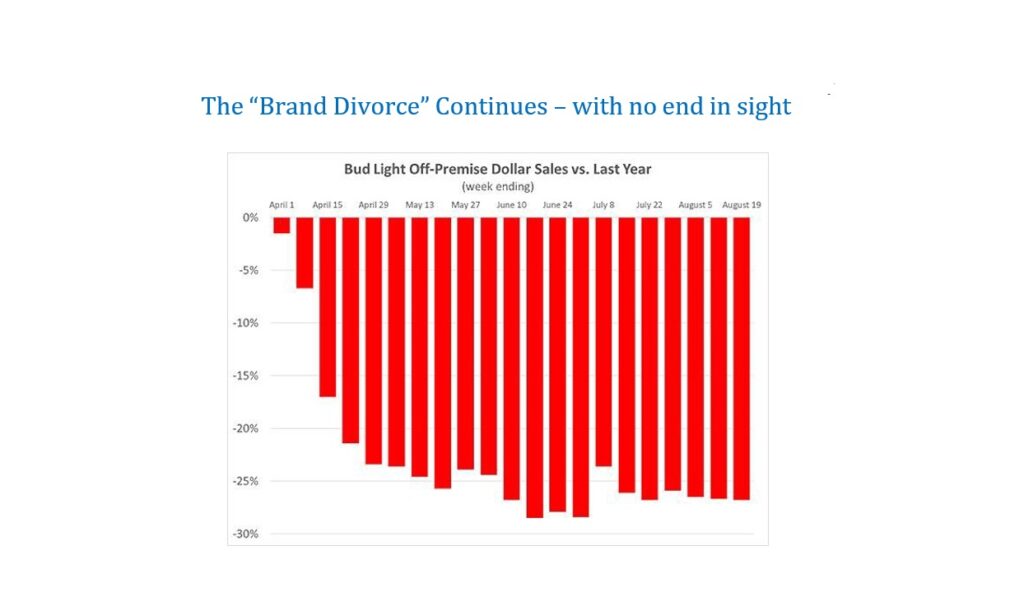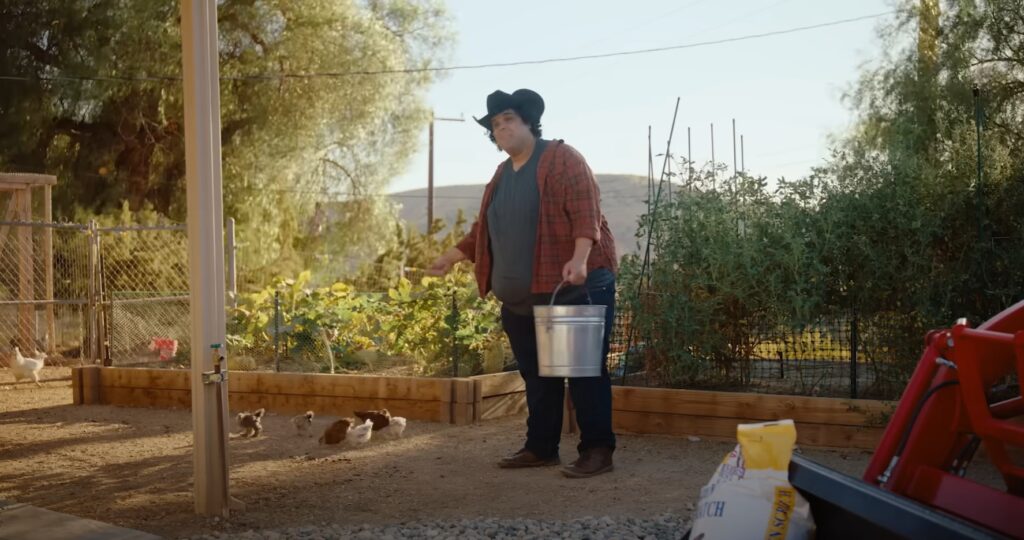In the final weeks before the election, Donald Trump and Kamala Harris are trying to hitch onto the McDonald’s brand in their desperate quests to win voters in swing states.
McDonald’s is an iconic brand. One of the world’s most valuable brands, it is consistently near the top of all rankings. Compare this with the tech companies whose high brand valuations come and go as their market cap fluctuates. The McDonald’s brand sources its strength from a broad constituency. But its core customer demographic—one whose allegiance is eagerly sought in the coming election—is working class American men, white and minority.
Kamala Harris has successfully associated her campaign with the McDonald’s brand for a while now, speaking fondly of her time behind the counter, making fries and serving customers. In a desperate last-ditch attempt to catch up, Donald Trump has made a push to grab the McDonald’s brand for himself and get its halo to shine on his campaign. This was the cause of his somewhat bizarre sudden appearance at a McDonald’s franchisee in Pennsylvania. He turned up pretending that he needed a job and spent time behind the drive-through window serving customers!
Did it work? Who knows? Donald Trump definitely cannot claim to have worked at MacDonald’s. He has never needed to. He has always been wealthy, as the son of a billionaire and someone who claims to be one himself, despite his innumerable bankruptcies and business failures. He did have an association with the McDonald’s brand back in the 1980’s, but only in an ad, where he appeared alongside the Grimace. And, if you look at his diet, burgers, fries and ketchup, from McDonald’s or Burger King, do seem to form a large part of it. He memorably threw all three against a wall when angry with someone.
Poor McDonald’s is horrified by it all. Donald Trump’s appearance at the franchisee was not approved by them. The company prides itself on having a brand with universal appeal and did not commit to support either candidate. As McDonald’s CEO Joe Erlinger stated: “McDonald’s does not endorse candidates for president. We are not red or blue; we are golden.”
Harris’s recent attempt to woo working class men recalls not so much McDonald’s brand as another now less politically helpful brand – Bud Light. As many of you will be aware, Bud Light recently blew up its long-established reputation with blue collar men, through thoughtlessly associating itself with actress and TikTok personality Dylan Mulvaney, a transgender woman. More than a year since the ill-fated campaign, Bud Light’s reputation remains trashed, its weekly sales vs. a year ago continue to show double digit declines, and its brand value has fallen through the floor. Modelo and Michelob Ultra have now overtaken it as the #1 and #2 US beer brands.
In much the same way, (though not quite as bad), Kamala Harris’s recent men-focused ads were clumsy enough to present a terrible series of hackneyed male images. The “Man Enough” ad is so filled with macho clichés that it recalls the much criticized “Backyard Grunts” ad that Bud Light released in trying to come back from the Dylan Mulvaney “brand divorce” with its customers.
To appeal to genuine everyday working men in swing states, Harris’s ad features actors with unusual backgrounds taking on stereotypical roles and making odd and out-of-touch references. The man who says he is “man enough to f-ing braid my daughter’s hair,” is a single actor with no children. Another actor says he “eats carburetors for breakfast,” which blue collar men in Pennsylvania probably know haven’t been used in cars for 30 years. The impact of these images has been to diminish her appeal to the target audience, not enhance it as intended–unlike the successful Brat branding early on.
The message for all of us—you never own your brand. The world does. You have to be very vigilant to stop others misappropriating its reputation. At the same time, all this is a huge tribute to the McDonald’s brand, showing just how much appeal it has and how much value it can create—for itself and for those who coopt it.



